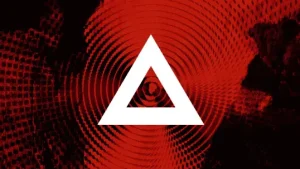- Chainlink explains how Music NFTs can revolutionize the music industry allowing artists and fans to connect at a deeper level.
- Music NFTs will reduce the entry barrier for emerging artists not having enough funds for distribution channels.
Oracle services provider Chainlink (LINK) is currently on a new mission to reshape the global music industry by leveraging the power of non-fungible tokens (NFTs). Chainlink has introduced something called Music NFTs to completely revolutionize the way artists create, distribute, and earn income from their music.
In the existing system, music artists have to rely on a number of factors such as recording contracts, making brand deals, and top of it extensive touring. With Music NFTs, Chainlink seeks to simplify the whole process allowing artists to solely put their primary focus on the most-important task i.e. creating music.
As we know, non-fungible tokens (NFTs) are unique blockchain-based tokens that could be linked to any kind of digital art such as images, music, videos, and other forms of media. Similarly, a Music NFT will be a unique blockchain-based digital asset that can represent anything such as artists’ music, concert tickets, virtual experiences, exclusive merchandise, and much more.
Chainlink says that Music NFTs will allow the artists to build a more direct relationship with their fans thereby bypassing larger platforms. Some music NFTs can be generated entirely through on-chain algorithms and no external dependencies. It will also help artists preserve the originality of the music while reducing the chances of duplicity and theft.
Furthermore, a music NFT will play a crucial role in shifting the ownership of the music from companies to individuals. It will allow artists to hold full ownership of their creations.
Working of Music NFTs
Some of the Music NFTs come with royalty-sharing features. Thus, they can provide a source of income to artists without having them rely on the earnings from streaming services. Instead of just going after large audiences and spending majorly on excessive marketing, owners of Music NFTs can rely on a small group of extremely dedicated fans.
Furthermore, Music NFTs will reduce the entry barrier for emerging artists not having enough funds for distribution channels. They can also leverage the emerging Web3 space giving artists greater control over their career and revenue streams.
Another interesting application of Music NFTs is that artists can build token-gated communities. This will allow fans to participate in exclusive events and promotions.
Chainlink believes that Music NFTs can give artists better revenue opportunities over the existing streaming platforms. They can create their own NFT collection while setting up the mint price of their NFTs which could lead to better monetization with a larger audience base. In fact, the buyers of this NFT collection will be a more loyal base audience. Furthermore, Chainlink explains:
Music NFTs allow fans to become early investors in an up-and-coming artist and help steward their success. Finding an artist early who may be underappreciated can lead to success both for the artist and their fans. Fans can take early exposure to the artist and form a more intimate relationship with them, similar to buying a stake in an early-stage startup.
The good thing is that Music NFTs can be launched on all popular NFT marketplaces such as OpenSea, Blur, LooksRare, and X2Y2. Besides, they can also be available on specialized Web3-native platforms such as Audius, Sound XYZ, Royal, Opulous, and Catalog.
Der Beitrag Chainlink services & features helping reshape how music is discovered, distributed, and monetized through music NFTs – Will LINK dominate the billion-$-market? erschien zuerst auf Crypto News Flash.





















